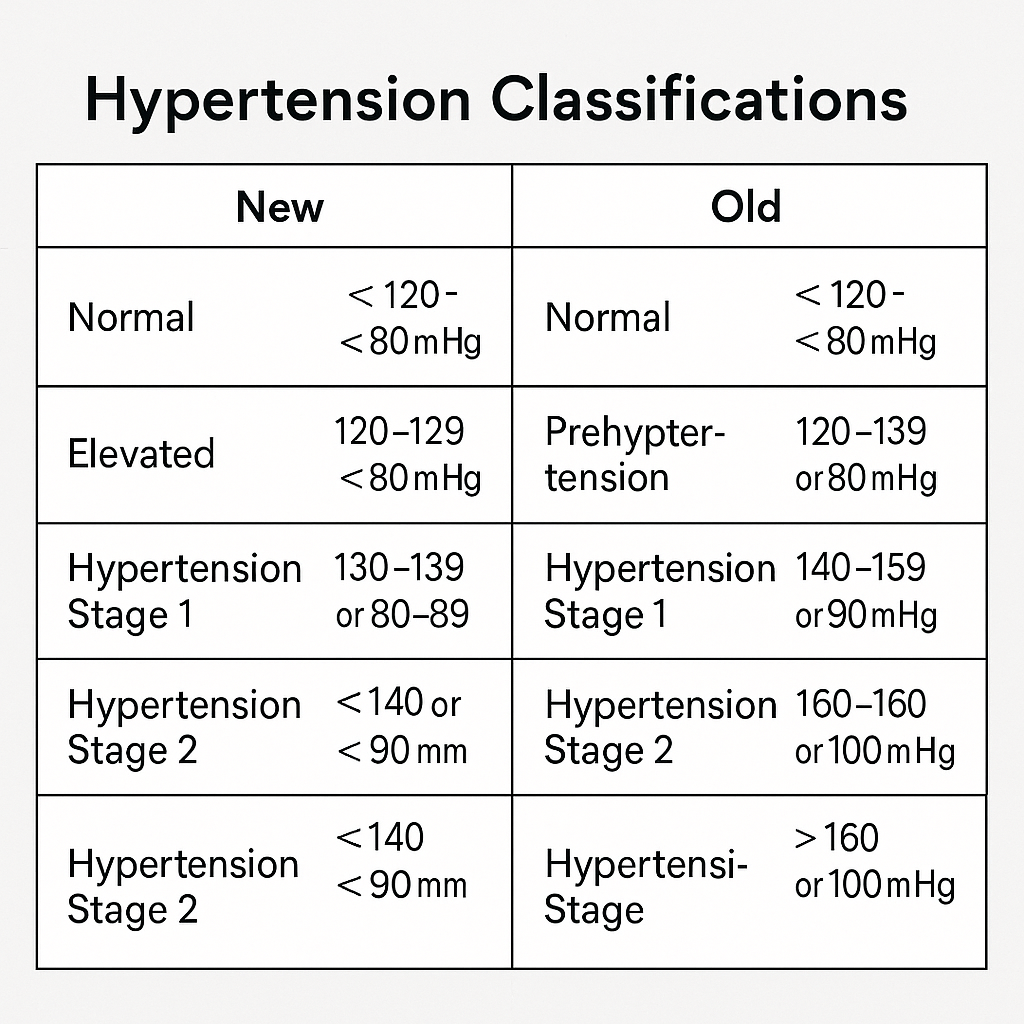Introduction
Hypertension is no longer an “old person’s disease.” In Pakistan, an increasing number of young adults (aged 18–35) are presenting with elevated blood pressure, often going undiagnosed until complications appear. This blog summarizes the latest global and regional guidelines for managing hypertension in younger populations, with practical takeaways for Pakistani healthcare professionals.

1. Understanding the New Thresholds (AHA/ESC & South Asian Consensus)
- Normal BP: <120/80 mmHg
- Elevated BP: 120–129/<80 mmHg
- Stage 1 HTN: 130–139 or 80–89 mmHg
- Stage 2 HTN: ≥140 or ≥90 mmHg
Note: South Asian patients are at higher risk for cardiovascular complications even at lower BP thresholds, hence early diagnosis is crucial.

2. Primary Risk Factors in Pakistani Youth
- High salt intake (avg. Pakistani consumes 2x the recommended limit)
- Sedentary lifestyle and rising obesity rates
- Increased mental stress and poor sleep
- Family history and smoking
Encourage young patients to monitor BP regularly, especially if they fall into any high-risk category.
3. First-Line Management: Lifestyle Modifications
Before jumping to pharmacologic treatment, reinforce these steps:
- Salt restriction (<5g/day)
- Physical activity (≥150 minutes/week)
- Weight control (BMI <25)
- Stress management (yoga, counseling, adequate sleep)

4. When to Start Medication
According to 2023 ESC and ISH Guidelines:
- If lifestyle changes fail after 3–6 months
- If BP is >140/90 mmHg on two separate readings
- Start with low-dose monotherapy (e.g., ACE inhibitors, ARBs, or calcium channel blockers)
In Pakistani patients, consider generic availability and affordability when prescribing.
5. Monitoring & Follow-Up
Young patients often stop taking meds due to side effects or denial of the problem. Ensure:
- Monthly BP checks initially
- Monitor kidney function (creatinine, eGFR)
- Emphasize adherence and long-term benefits

Final Thoughts
Hypertension in young adults is a growing but manageable threat. With timely intervention and culturally tailored advice, Pakistani doctors can prevent long-term damage like stroke, kidney disease, and heart failure.
✅ Quick Recap for Practice
- Use updated BP thresholds
- Focus on early lifestyle interventions
- Prescribe affordable monotherapy when needed
- Track compliance and follow-up rigorously


No comments yet.